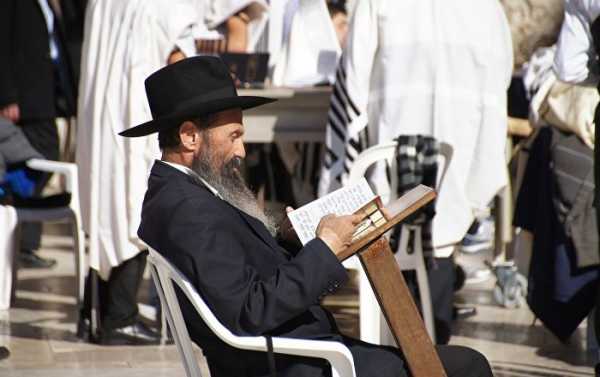
According to a recent report by the EU Commission, over half of Europeans find that anti-Semitism and Holocaust denial have become a problem, with Sweden peaking at 81 percent. This coincides with a high level of Muslim immigration to the Scandinavian country.
A recent study presented by the European Commission ahead of Holocaust Memorial Day on 27 January has found that about half of the 27,000 respondents in 28 EU member states believe that Holocaust denial and anti-Semitism have become a problem.
Standing out at 81 percent, Sweden is a clear outlier, followed by France at 72 percent. EU Commissioner Věra Jourová voiced her surprise at the figures.
“I always thought it was clear that the Holocaust did taken place, that 6 million people were killed. For me, it is unthinkable that anyone should deny it”, Věra Jourová, EU Commissioner for Legal Affairs, told Swedish Radio. According to Jourová, this is a “clear message” to the Swedish government “to be vigilant and take action”.
The survey also indicated that the Jewish population itself believes anti-Semitism has grown to become a serious problem. Some 9 out of 10 European Jews perceive a rise in anti-Semitism, whereas 4 in 10 Jews are thinking about leaving Europe, Jourová said in her recent speech at the Jewish Museum in Brussels.
According to Pascale Falek-Alhadeff at the Jewish Museum in Brussels, where four people were killed in a terrorist attack almost five years ago, anti-Semitism has become “normalised”.
A previous report released by the European Union Agency for Fundamental Rights (FRA) identified that over 90 percent of Swedes believe that anti-Semitism has risen in recent years. According to FRA, the most common anti-Semitic opinions are “the Holocaust is a myth or has been exaggerated”, “Jews exploit Holocaust victimhood for their own purposes” and “Jews have too much power”.
“I think that Sweden was not anti-Semitic at all before, that has changed, it’s that which feels so difficult”, a Swedish woman in her 70s said, as quoted by the FRA survey.
“Anti-Semitism is for real, it’s a habit that routinely grows, it’s there and runs wild”, a Swedish woman in her 30s, who identifies as an “outspoken Jew”, said in the same survey.
Sweden’s Jewish diaspora currently numbers some 20,000 people and is one of Europe’s largest. Yiddish is one of Sweden’s official minority languages. In recent years, members of the Jewish community have signalled growing discrimination, threats, and attacks. Many commentators, such as Paulina Neuding, view contemporary anti-Semitism largely as a product of mass immigration of Muslims who have brought anti-Jewish attitudes from their countries of origin.
As of today, Sweden’s Islamic community is over 800,000 strong and is constantly growing. The majority of recent asylum seekers in Sweden hail from the Middle East, North Africa, or the Horn of Africa.
Holocaust Memorial Day is observed on 27 January, the day the Red Army liberated the Auschwitz death camp.
Sourse: sputniknews.com






